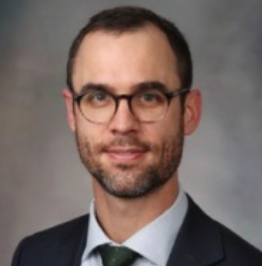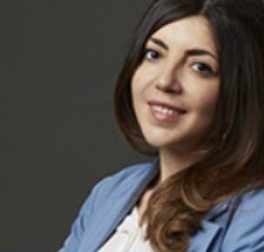- Case-Based Roundtable
- General Dermatology
- Eczema
- Chronic Hand Eczema
- Alopecia
- Aesthetics
- Vitiligo
- COVID-19
- Actinic Keratosis
- Precision Medicine and Biologics
- Rare Disease
- Wound Care
- Rosacea
- Psoriasis
- Psoriatic Arthritis
- Atopic Dermatitis
- Melasma
- NP and PA
- Skin Cancer
- Hidradenitis Suppurativa
- Drug Watch
- Pigmentary Disorders
- Acne
- Pediatric Dermatology
- Practice Management
- Prurigo Nodularis
- Buy-and-Bill
News
Article
World Congress of Dermatology 2023: Spotlighting Leaders in Derm
Author(s):
During the 25th World Congress of Dermatology, 40 rising stars and personalities were spotlighted for their contributions to the field.
During last month's 25th World Congress of Dermatology in Singapore, 40 leaders in dermatology were named either rising stars under the age of 40 or as longstanding, prominent figures in the fields of dermatology or in the Scientific Programme.
Dermatology Times® reached out to the leaders named on this list to ask them to share their perspectives on this designation and what they are most excited about in dermatology moving forward.
Aaron Mangold, MD - Phoenix and Scottsdale, Arizona, USA
Mayo Clinic Arizona

Dermatology Times: What areas or specialties of dermatology do you most frequently work in, or which areas do you consider yourself a specialist in?
Mangold: My practice is largely consultative. I direct our cutaneous lymphoma program which makes up most of our patients. Additionally, my team and research group specialized in rare inflammatory diseases include immunobullous diseases, autoimmune connective tissue disease, lichenoid diseases, and cutaneous granulomas.
Dermatology Times: What does it mean to you to be on this list?
Mangold: It means a lot to be recognized by peers as well as mentors as a a future leader in the field.
Dermatology Times: How do you hope to impact the field of dermatology?
Mangold: In collaboration with others, I would like to re-define the clinical, histological, and genetic ontology of as many dermatologic diseases as possible. Our lab as well as others have demonstrated that the current clinical and histological categories do not correlate with underlying molecular changes. We need a system that identifies the right patient population for specific treatment as well as to identify them as at risk for other complications.
Adèle de Masson, MD, PhD - Paris, France
Professor of Dermatology, Hôpital Saint-Louis, Assistance Publique-Hôpitaux de Paris, INSERM U976, Université Paris Cité

Dermatology Times: What areas or specialties of dermatology do you most frequently work in, or which areas do you consider yourself a specialist in?
de Masson: My clinical activity focuses on cutaneous lymphomas, dermatological manifestations of hematological diseases, and inflammatory skin diseases. Our research team aims to identify, develop and evaluate new biomarkers and therapeutic targets in cutaneous lymphomas.
Dermatology Times: What does it mean to you to be on this list?
de Masson: That is certainly a recognition of our team's achievements in the field of cutaneous lymphomas over the past 10 years, both in clinical and translational research. That is testimony to the fact that our research efforts are recognized by the medical community, by our peers, as able to bring real benefits and change to patients. It also reflects the fact that mentoring works in dermatology, and that younger people are encouraged to pursue research. This is possible because established researchers take on the role of mentors, and because research organizations provide grants that help young scientists and physicians at key stages of their career: PhD, post-doctoral fellowship, etc.
Dermatology Times: How do you hope to impact the field of dermatology?
de Masson: Our team strives to develop research that will eventually impact patient's lives. In cutaneous T-cell lymphomas for example, there is a critical unmet need for new effective treatments with little side effects. We strive to identify new and meaningful targets and bring our projects to a successful end, that is, to the patient's bedside. Major changes are taking place in the field, such as artificial intelligence, but are still in their infancy in terms of integration into the clinical workflow. It's our responsibility to make this possible by providing clinical data of the highest possible quality, and to contribute our clinical expertise to implement solutions that make sense and really improve patient care.
Brian Kim, MD, MTR - New York City, New York, USA
Sol and Clara Kest Professor, Vice Chair of Research, Director of Mark Lebwohl Center for Neuroinflammation and Sensation, Icahn School of Medicine at Mount Sinai

Dermatology Times: What areas or specialties of dermatology do you most frequently work in, or which areas do you consider yourself a specialist in?
Kim: Chronic pruritus.
Dermatology Times: What does it mean to you to be on this list?
Kim: There is no greater honor than to be recognized by your colleagues, and this recognition is empowering.
Dermatology Times: How do you hope to impact the field of dermatology?
Kim: Show the field of medicine that solving dermatologic problems can help to treat other diseases beyond the skin.
Dermatology Times: What message(s) would you like to share with your peers?
Kim: There is nothing more gratifying that working on the most challenging problems in dermatology. I am grateful to my patients, trainees, colleagues, and mentors for the opportunity to do this day in and day out.
Dóris Hexsel, MD - Rio de Janeiro and Porto Alegre, Brazil
Former Professor of Dermatology at the School of Medicine at the University of Passo Fundo, Brazil

Dermatology Times: What areas or specialties of dermatology do you most frequently work in, or which areas do you consider yourself a specialist in?
Hexsel: I am a cosmetic dermatologist, and the main areas of interest are cellulite and botulinum toxins (BT). I developed the surgical treatment of cellulite; using MRI, we demonstrated the subcutaneous septa linked to the cellulite depressions. Editor of the first book on the Cosmetic Use of Botulinum Toxin, I also conducted some studies on the field of effects of BT and recently, demonstrated the long term and cumulative effects of repeated injections of BT repositioning the brows and resolving gummy smiles.
Dermatology Times: What does it mean to you to be on this list?
Hexsel: I feel lucky having a role in aesthetic dermatology and to participate in the growth of my speciality. It is very important to have peers' recognition of our scientific work.
Dermatology Times: How do you hope to impact the field of dermatology?
Hexsel: I believe I did impact the aesthetic dermatology by conducting studies in this field. As an example, my studies helped to bring cellulite to the dermatologic domain.
Dermatology Times: What message(s) would you like to share with your peers?
Hexsel: In the times of social media, I do encourage dermatologists to be ethical, conduct studies and invest in scientific publications. In this way, dermatology will continue to grow and be more and more respected by peers and patients.
Raj Chovatiya, MD, PhD, MSCI, FAAD - Chicago, Illinois, USA
Northwestern University Feinberg School of Medicine

Dermatology Times: What areas or specialties of dermatology do you most frequently work in, or which areas do you consider yourself a specialist in?
Chovatiya: Immune-mediated inflammatory diseases.
Dermatology Times: What does it mean to you to be on this list?
Chovatiya: It's a true honor to be named an under-40 personality and rising star in dermatology. While I have not pursued my passion for awards or titles, it's validation that there is no singular blueprint to success. If you carve your own path and believe in what you do, anything is possible.
Dermatology Times: How do you hope to impact the field of dermatology?
Chovatiya: Over the next decade I hope to continue my work in elevating our standard of care for patients suffering from immune-mediated inflammatory disease through a combination of clinical care, research, and education.
Dermatology Times: What message(s) would you like to share with your peers?
Chovatiya: I'm just getting started! Thank you so much for the recognition - the best is yet to come.
Stefania Guida, MD, PhD - Milano, Italy
Vita-Salute San Raffaele University, Milano, Italy

Dermatology Times: What areas or specialties of dermatology do you most frequently work in, or which areas do you consider yourself a specialist in?
Guida: Skin cancer and skin aging, from diagnosis to treatment. Despite the apparent contrast between these fields, there is an important lesson that I learned: how skin aging features are related to skin cancer development.
Dermatology Times: What does it mean to you to be on this list?
Guida: It means the recognition of the work I have done so far and an opportunity to contribute to the scientific debate in Dermatology.
Dermatology Times: How do you hope to impact the field of dermatology?
Guida: Encouraging local, national and international networking among dermatologists and specialists working in different fields to spread knowledge and develop dermatology at 360°, from translational research to the development of new treatments and diagnostic techniques, in order to contribute to skin health for all. In my field of interest, I am motivated to provide new insights into understanding the underlying mechanisms linking skin aging to skin cancer.
Dermatology Times: What message(s) would you like to share with your peers?
Guida: There are 4 keywords for this message. Collaboration, acknowledgement, responsibility, thankfulness. Collaboration is an important part of our work and we should always encourage it. Acknowledgement of the increasing knowledge in our discipline, and to take responsibility for complex and difficult patients. Being thankful to those people supporting us every day at home and at work, and to patients who are the main reason for our dedication to research and daily practice.
If you were included on this list and would like to share your insights, please email us at DTEditors@mmhgroup.com.






